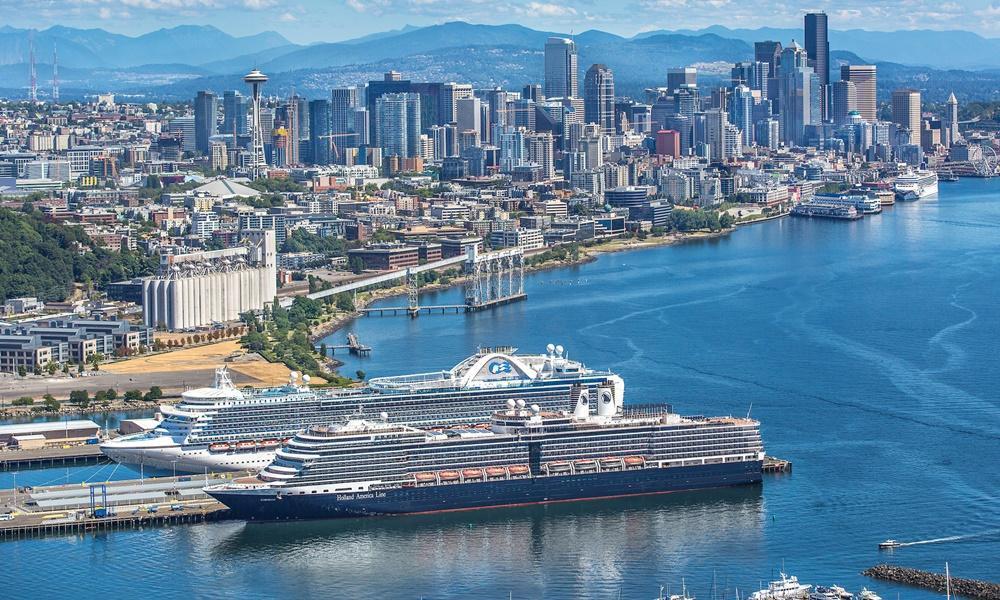The Port of Seattle Commission has taken initial steps to scale down spending through the rest of the year while backing measures to protect small businesses and laid-off workers at Sea-Tac (Seattle-Tacoma International Airport).
Acknowledging that global COVID-19 pandemic is taking a toll on projected revenue, commissioners cut nearly USD 70 million from the 2020 budget of Port Seattle WA, including by postponing the controversial USD 100 million redevelopments of a downtown pier into a cruise ship terminal while the industry is in uncertainty.
Current projections say that annual passenger traffic through Sea-Tac Airport will be down 50% in 2020 in comparison with 2019. In late March, the estimate stood at a 44% decline.
Also at risk is “a significant portion” of projected USD 26 million in cruise revenues. Federal disease control experts issued a temporary no-sail order to control the spread of the virus. Canada took similar measures that could halt cruises between Seattle and Alaska through July 1, 2020. The vast majority of voyages from Seattle are Alaska sailings.

Commissioners conceded Tuesday, April 28, it makes little economic sense to go on with plans to redevelop part of Terminal 46 close to Pioneer Square into the city’s 4th cruise ship berth. The project drew opposition from climate activists as it builds capacity for a new source of climate-changing emissions.
It is not clear yet when the cruise port will restart Terminal 46 development or the other (maritime and aviation) development projects it chose to delay. Commissioners announced they would reevaluate the decision as conditions changed. Together with the existing hiring freeze, the postponements are expected to save the Port US$70 million, Port CFO Dan Thomas said.
Those savings, combined with a USD 192 million federal relief package for Sea-Tac Airport, may not be enough for the Port of Seattle to meet expenditures. The Port is now drawing on its rainy day fund in order to cover operations and maintenance, corporate finance director Elizabeth Morrison said.
Commissioners approved US$150 million in “additional backup liquidity,” in a short-term loan or revolving line of credit from JP Morgan Chase.
More federal funds are needed to shore up the revenues of the Port, Thomas said, as the economy is weakening.
For Coronavirus updates on cruise ship quarantines (infected passengers and crew) and top-pandemic countries (COVID-19 cases and deaths, daily updated statistics) see at CruiseMapper's Norovirus page.